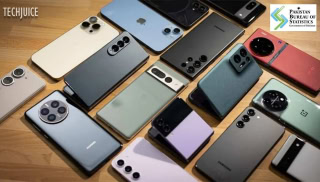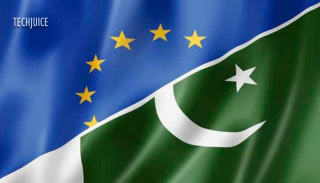The phenomenon of globalisation is taking over the world which is leading to discoveries and innovations every day. Amidst these advancements, the urban centres of the world are the major recipients of the new developments, and states around the world are adjusting their policies to meet the demands of growing needs. Similarly, the technological revolution has changed the outlook of most of the operations and technology is seeping into every domain of urban centres. In this backdrop, there are some social, economic, and environmental challenges attached to the rapid urbanization which require immediate redressal. Moreover, the United Nations (UN) being cognizant of the fact stated that 90% of the expansion will happen in the urban centres of the world in the future.
Sustainable Development Goals and Sustainable Cities
In this context of rapid transformation, the UN and its member states adopted Sustainable Development Goals (SDGs) for a sustainable future. Goal 11 of these SDGs pertains to the development of sustainable cities and communities; in this regard, the term ‘smart cities’ is resonating in the policy circles of governments. Moreover, governments have been piloting different projects to formulate a flawless blueprint for ‘smart cities’. It is expected that by 2050, 6.5 billion people will be residing in urban areas; if gone unnoticed, the expanding urbanization will expedite climate change, the rural-urban divide, and poverty and hunger. As a way forward, inclusive policy-making and tailoring the real estate practices to counter these social issues can prove beneficial.
Concept of ‘Smart Cities’
The term ‘Smart Cities’ itself gives a hint that the concept is related to the development of cities on the lines of technology-intensive approaches. On a superficial level, the definition of smart cities is perceived to be narrow and only pertains to the incorporation of technology. However, the phenomenon of ‘smart cities’ cannot be tagged alone to technology; rather, it is a conglomerate entity manifesting new sets of ideas. The literature review of ‘smart cities’ around the world brings forth different definitions wherein wide concepts are included based on their development agenda and the extent of their urban policies.
The most inclusive definition for defining smart cities can be stated as:
Employing Information Communication and Technology (ICT) in the development of new or existing cities to resolve the emerging urban problems, create new economic opportunities without impacting the social development, and cities regulated through environment-friendly practices. In other words, achieving sustainable development by incorporating smart technologies and cities being the solution to the emerging problems along with ensuring social, economic and environmental development. Various examples of smart cities around the world show that states have integrated major components of infrastructure with (ICT) and have achieved smart infrastructures such as smart administration, smart economy, smart environment, smart transport, smart health, and smart education.
Moving forward, the key to making smart cities a reality is ‘inclusion’, with maximum burrowing of data related to urban centres and computing it to form a system assisted by smart and sustainable practices. The World Development report of 2016 has stated inclusion, efficiency, and innovation as a bedrock of smart cities.
- Inclusion: means noting down the responses of the people living in the periphery of urban areas. Similarly, incorporation of community needs, environmental risks and laying down a network using technology to expand civic participation to counter the evolving needs leads to inclusion.
- Efficiency: as explained by the World Development report of 2016 is pertaining to the data collection and then building the strategy based on collected data. The ICT around the major cities is assisting the collection of data through cameras, sensors and other sophisticated techniques.
- Innovation: Innovation as laid down by the World Bank (WB) is about combining the synergies of various stakeholders at a macro level. Furthermore, public-private partnerships for evolving comprehensive smart strategies is also an important aspect of
As mentioned earlier, the definition of smart cities is adopted by every state based on its urban policy and town planning. Underneath are the few practices that have been adopted and piloted by the major cities under smart cities projects.
Technology and Urban Mobility
Urban mobility is emerging as a major challenge in the organisation of cities; as a panacea, technology is proving useful for administering an efficient transport system. Under the purview of ‘smart cities’, technology is transforming the modus operandi of commute and public transportation by creating a network involving the internet, handheld devices, and mobile applications. For example, environmentally-friendly electrical buses are replacing the old buses which shared a major portion of the carbon emissions.
In this aspect, an example of Seoul city is a success story which through the adoption of Bus Management System (BMS), GPS, and Intelligent Transport System (ITS) is managing its transport system. The control system of BMS gathers the information and accumulates it to passengers, bus stops through mobile applications and the internet. This results in efficient transport management by employing the right amount of resources.
Solid Waste Management
As the urban cities are expanding and the population across the world is increasing, solid waste management is posing a major problem in maintaining a healthy lifestyle and hampering the goals of sustainable development. Since Sustainable development is at the forefront of smart cities, states across the world have tailored their solid waste management techniques to meet the energy requirements thus avoiding the issues of landfills and land pollution.
States around the world use incinerators to burn the waste, the steam generated from the burning is utilised to drive the generators for the production of electricity. Hence, garbage is being used to replace fossil fuels for the generation of electricity.
Similarly, mobile apps are also being developed to locate smart waste disposal units, which are an important medium for waste sorting. Waste sorting is used to segregate different types of waste.
Internet of Things (IoT)
Being one of the major components of smart cities, the Internet of Things (IoT) is a backbone to the concept of smart cities. Concepts like the Internet of Smart Living (IoSL), Internet of Smart Cities (IoSC), and Internet of Health Services (IoHS) are emanating.
The households have incorporated IoT to the best of their use in managing the daily operations of the house. From water management to managing the security of houses everything is reduced to handheld devices by connecting them with the internet. Similarly, the structural health of buildings is being monitored through technology as an extension of the concept of smart cities.
Smart Cities Harnessing E-governance
As mentioned earlier inclusion is at the forefront of smart cities. In this direction, smart cities are also becoming a medium of bridging the gap between the people and government through the use of technology. Governments around the world have taken initiatives for harnessing e-governance by involving people in policymaking by developing e-platforms. The governments have developed online platforms for service delivery, civic participation, and access to government services.
The gap between government and polity can be abridged using technology, and smart cities provide a suitable platform. Moreover, emerging urban, social and environmental issues can be directly conveyed to the government.
Mitigating Natural Calamities in Smart Cities
Since technology-intensive techniques lie at the forefront of smart cities, technology is being employed to predict natural calamities and to tackle their disastrous impact at the time of natural calamity in cities. Technology in this domain is helping municipalities to develop smart emergency systems and ICT is assisting to design counter-measures.
Graana.com and PropTech
It is a fact that the transition to smart cities is impossible without the transformation of the real estate sector. In this realm, Graana.com being the pioneers of PropTech in Pakistan is paving the path for achieving a smart eco-system that will eventually lead to the development of smart cities.
Graana.com being Pakistan’s first online real estate marketplace is harnessing the concept of the Internet of Things (IoT). The online property portal of Graana.com has reduced the physical distances to the digital front, and the information pertaining to the real estate sector is available at one tap away from mobiles. Moreover, the option of verified listings has given a new meaning to the brokerage of the real estate sector; the buyers and sellers can have hassle-free business discussions.
Similarly, through its PropSure solutions, Graana is inculcating practices pertaining to quality control, and effective estate management.
This content has been produced in collaboration with the sponsor.











